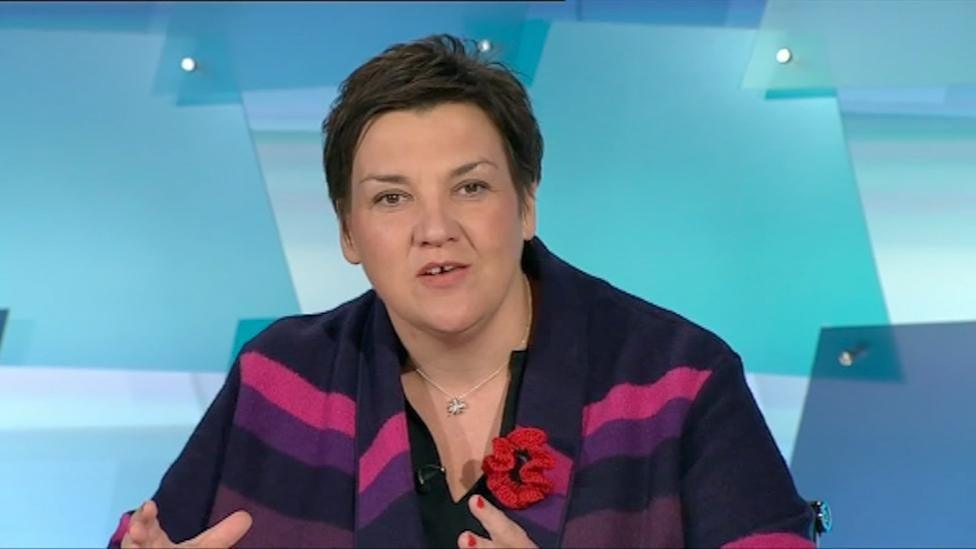Labour MP calls for sex buying to be criminalised

Tonia Antoniazzi has called for sex buying and 'pimping websites' to be criminalised
- Published
A Labour MP has called for the purchasing of sex to be criminalised.
Tonia Antoniazzi said that "sex buyers fuel demand for trafficking" and must be held accountable "for the severity of their actions".
The MP for Gower also urged a crackdown on "pimping websites", which she compared to ordering a takeaway because of how easily they facilitate the exploitation of women.
The UK government said it was committed to tackling commercial sexual exploitation.
- Published16 May
- Published22 April
- Published8 June 2023
"Prostitution is violence against women. Men who pay for sex are not regular consumers harmlessly availing workers of their services," Ms Antoniazzi told MPs in the House of Commons.
"Offering somebody money, food, or a place to stay in return for them performing sex acts is sexual coercion. It is simply not possible to commodify sexual consent."
In England and Wales, the acts of buying and selling sex are not illegal.
Although many activities associated with prostitution are offences, such as links to exploitation.
The current situation amounted to a "legal fudge", added the MP.
"In England and Wales there is a loose patchwork of laws relating to prostitution with no consistent objective underpinning them.
"Third party facilitation of prostitution is illegal in some circumstances yet permitted in others.
"Victims of sexual exploitation face criminal sanction for soliciting in a public place while individuals who pay for sex only face criminal sanctions if they curb crawl or pay for sex with an individual subjected to force, even then the law is very rarely enforced. "
'Stop sexual exploitation'
The MP added that in many cities women were being trafficked and exploited for one overriding reason; "there are men willing and able to pay to abuse them".
She urged the UK government to follow other countries around the world in changing its laws.
"By criminalising paying for sex and decriminalising victims of sexual exploitation, governments of Ireland, France, Sweden, Norway and Canada have shifted the burden of criminality off victims and onto perpetrators," said Ms Antoniazzi.
"England and Wales must be the next countries added to that list."
She also stressed that merely targeting those who purchase sex would not suffice to stop sex trafficking.
"We also have to crack down on the pimping websites that enable and profit from this abhorrent trade," she added.
"To stop sexual exploitation, we must end impunity for pimps and punters and provide support, not sanctions, for victims."
The MP made the comments in a debate she had secured to discuss the prevention of commercial sexual exploitation.
In response, the Victims Minister Jess Phillips said the UK government would "use every lever available to stop commercial sexual exploitation."
Ms Phillips said that as the new government had only been in office a few weeks she was not in a position to make specific policy commitments, but she assured that policy changes were forthcoming.
"I expect change in this space," added Ms Phillips.